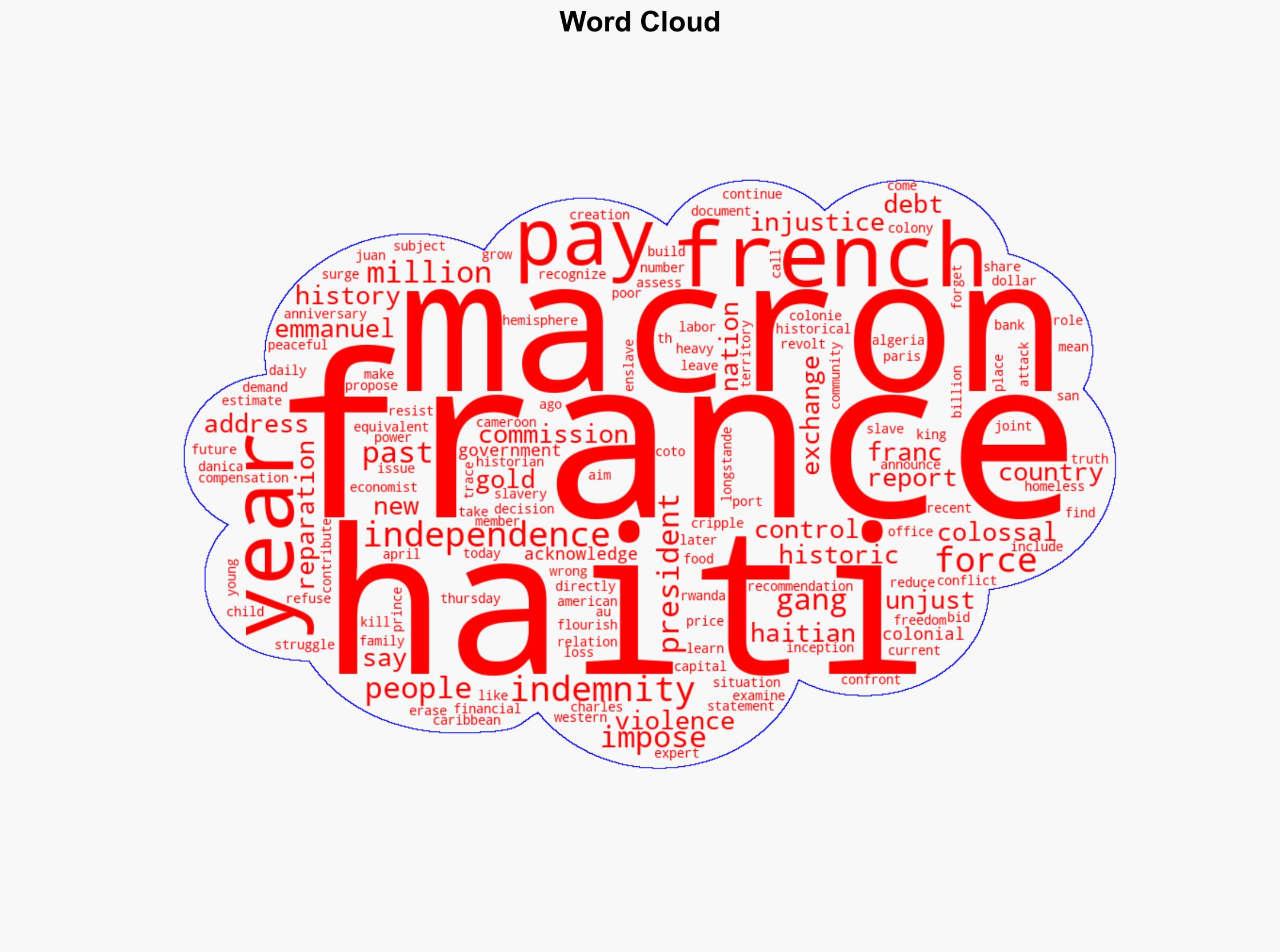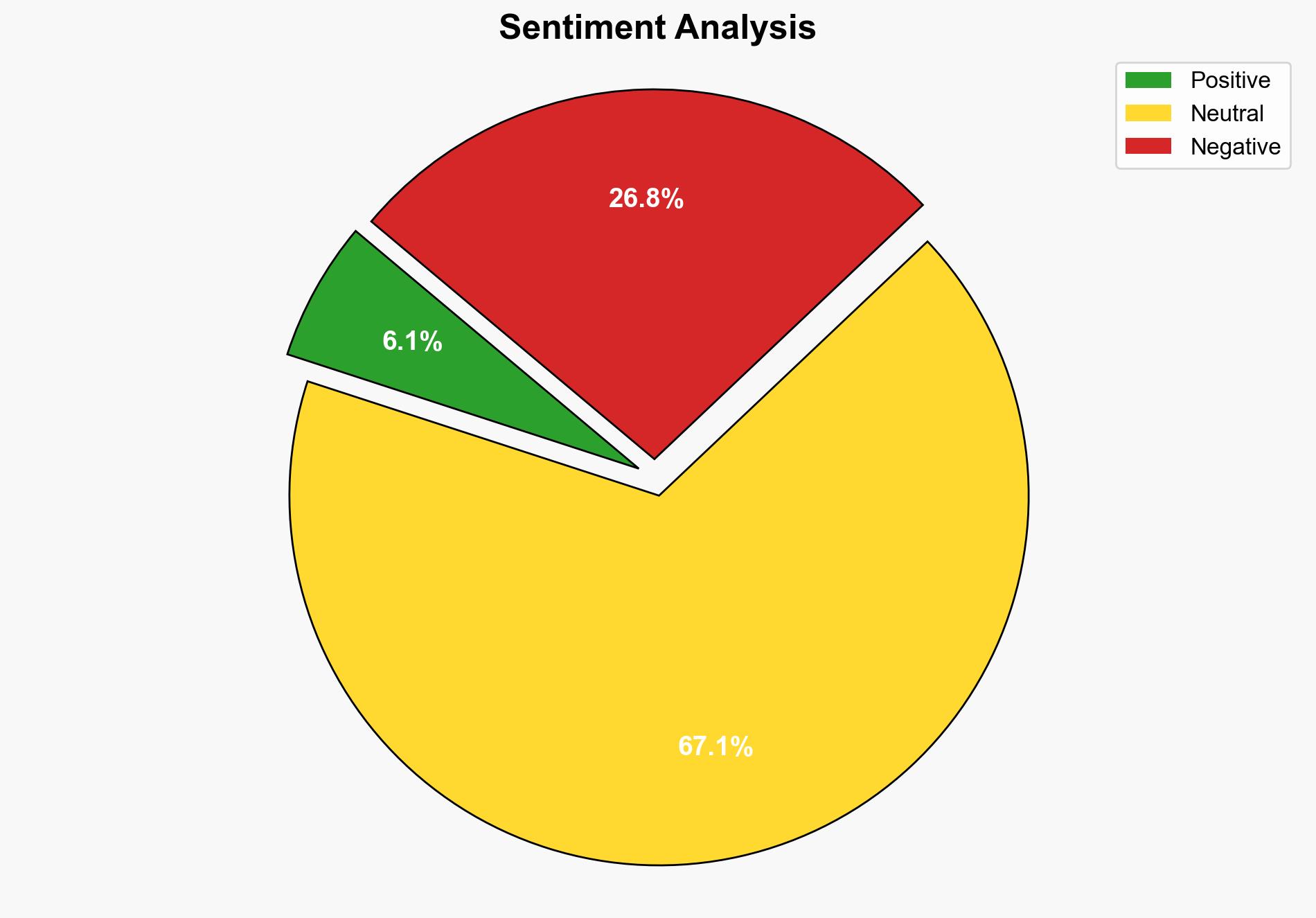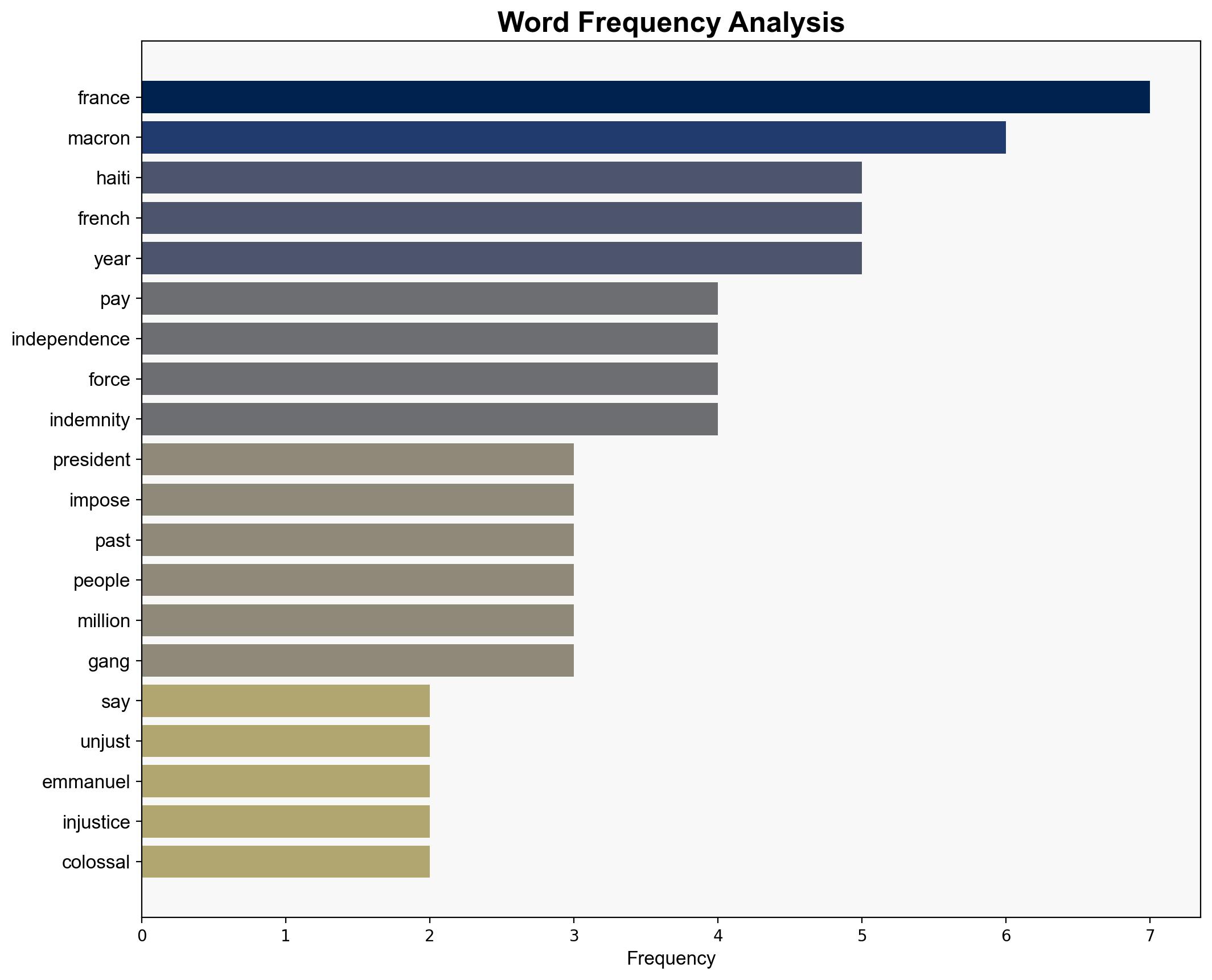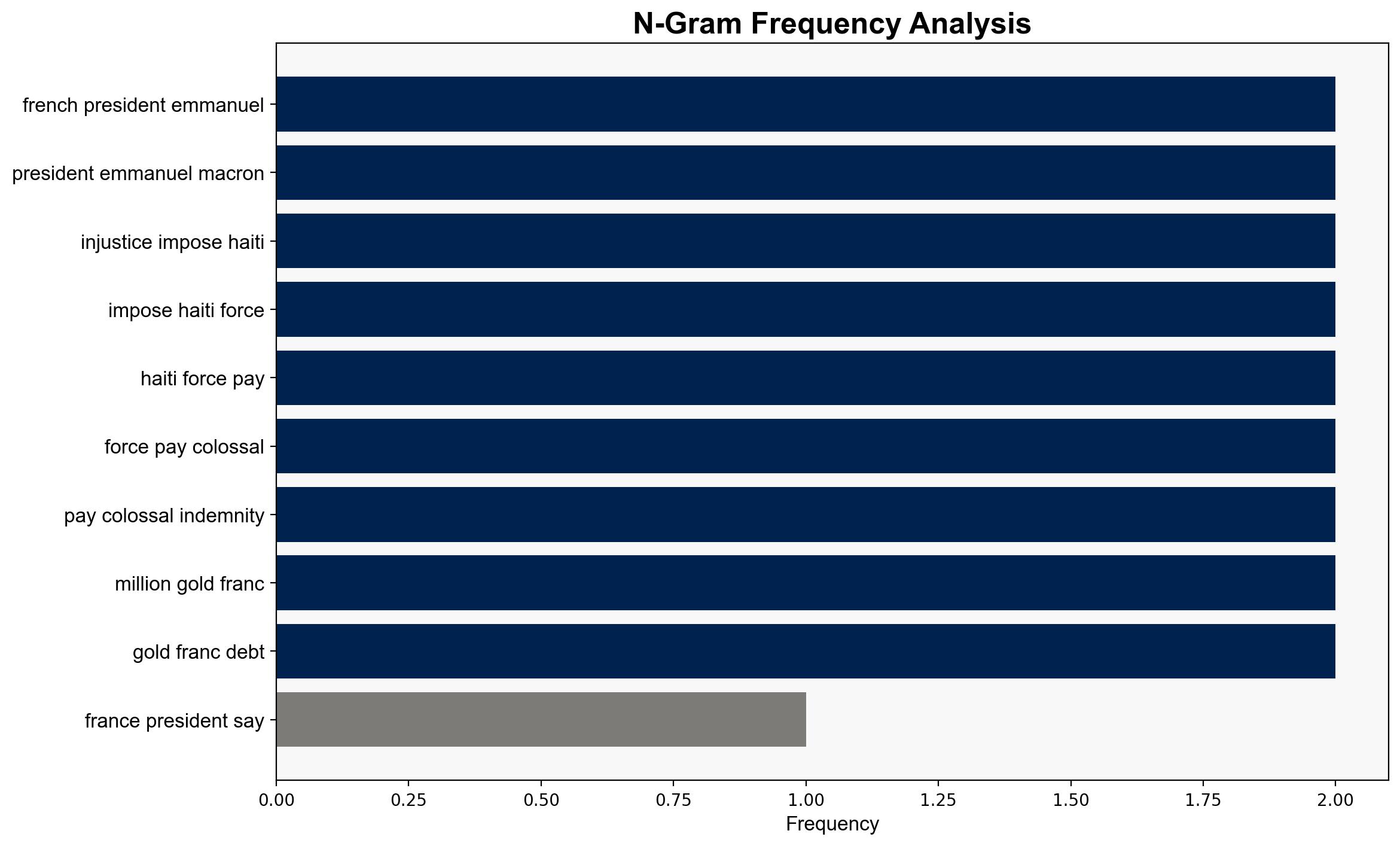France’s president says that making Haiti pay for its independence was unjust – NBC News
Published on: 2025-04-17
Intelligence Report: France’s president says that making Haiti pay for its independence was unjust – NBC News
1. BLUF (Bottom Line Up Front)
French President Emmanuel Macron has acknowledged the historical injustice imposed on Haiti when it was forced to pay a substantial indemnity for its independence. This statement coincides with the 200th anniversary of the indemnity’s imposition. Macron announced the formation of a joint French-Haitian historical commission to examine shared history and propose recommendations for future relations. However, he did not address the issue of reparations, a longstanding demand from Haiti. The acknowledgment may influence France’s diplomatic relations and impact Haiti’s socio-political landscape.
2. Detailed Analysis
The following structured analytic techniques have been applied:
SWOT Analysis
Strengths: France’s acknowledgment of historical injustices may improve diplomatic relations and foster dialogue. The creation of a historical commission represents a commitment to transparency and reconciliation.
Weaknesses: The lack of commitment to reparations may limit the effectiveness of these initiatives and maintain existing tensions.
Opportunities: The commission could pave the way for improved bilateral relations and economic cooperation. It may also set a precedent for addressing colonial legacies globally.
Threats: Continued instability in Haiti, exacerbated by gang violence and economic challenges, may hinder progress. Domestic criticism in France regarding reparations could also arise.
Cross-Impact Matrix
The acknowledgment by France could influence other former colonial powers to address their historical actions. Regional stability may be affected if Haiti’s socio-economic conditions do not improve, potentially impacting neighboring countries in the Caribbean.
Scenario Generation
Scenario 1: France and Haiti successfully implement the commission’s recommendations, leading to improved relations and economic support for Haiti.
Scenario 2: The lack of reparations leads to continued tension, with no significant improvement in Haiti’s situation, exacerbating regional instability.
Scenario 3: Other nations follow France’s lead, creating a broader movement to address colonial legacies, potentially leading to reparative actions.
3. Implications and Strategic Risks
The acknowledgment of historical injustices could enhance France’s global image as a nation willing to confront its past. However, failure to address reparations may perpetuate Haiti’s economic struggles and political instability, posing risks to regional security. The ongoing gang violence and humanitarian crisis in Haiti remain significant threats.
4. Recommendations and Outlook
- France should consider engaging in dialogue about reparations to address Haiti’s economic challenges and improve bilateral relations.
- International organizations could be involved to provide humanitarian aid and support economic development in Haiti.
- Scenario-based planning should include potential regional impacts of continued instability in Haiti, with strategies to mitigate spillover effects.
5. Key Individuals and Entities
Emmanuel Macron, Danica Coto





